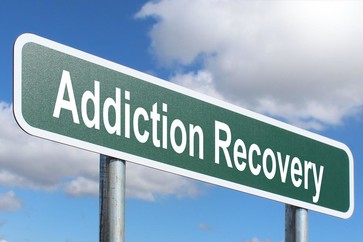Oregon Passes Legislation Making Sweeping Changes to Substance Use Disorder Laws

On Monday, April 1, Oregon Governor Tina Kotek signed into law new legislation to combat the state’s spiraling opioid crisis. This legislation could become a model for other states seeking to stem the growing tide of drug overdoses, hospitalizations, and deaths. It combines changes to criminal statutes with greater funding for treatment programs and requirements for insurance companies and medical providers to make substance use disorder treatment readily available.
Oregon House Bill 4002 was drafted by the Joint Interim Committee on Addiction and Community Safety Response and sent to the legislature in February of this year. On March 1, it passed by a vote of 51 to 7. A month later, Governor Kotek signed it into law. Some of the major provisions of the bill include:
- Changes the law to make it easier to get treatment for substance use problems
- Prohibits insurers from requiring prior authorization for coverage of substance use disorder medications
- Requires that coordinated care organizations provide members with medications for opioid use disorder
- Allows pharmacists to prescribe and dispense refills for opioid use disorder medications
- Requires the Alcohol and Drug Policy Commission to monitor access to opioid use disorder treatments and interventions
- Establishes a certified community behavioral health clinic program in the Oregon Health Authority
- Provides assistance to behavioral healthcare providers for training programs
- Increases penalties for possession of a controlled substance beginning September 1, 2024
- Increases the number of hours a person can be held when admitted to a facility due to intoxication or being under the influence of controlled substances
The bill also includes a great deal of language reclassifying substance use offenses in order to facilitate the other parts of the bill. The net effect is both a carrot and a stick: easier treatment options combined with stricter penalties for possession of a controlled substance. The goal is to loosen restrictions on pharmacists and medical providers to provide treatment for substance use disorder, including providing them with training and funding, while also making sure that insurance requirements for pre-authorization do not interfere with the timely provision of treatment.
Some of the funding to implement the bill is coming from revenue generated from cannabis taxes. The bill includes a significant number of efforts to track, evaluate, and improve substance use disorder treatment efforts throughout Oregon. In a review of the new law for the Oregon Capitol Chronicle, Ben Botkin wrote:
The new law will put $211 million towards a variety of court and treatment programs, including new and expanded residential treatment facilities, recovery houses and programs for counties to set up so-called deflection programs that people can participate in to avoid jail and criminal charges after an interaction with police. So far, 23 of Oregon’s 36 counties have agreed to set up those programs, which are not mandatory.
House Bill 4002 was a reaction to Measure 110, passed by the voters in 2020, which had decriminalized possession of non-commercial quantities of drugs. An article published by PBS NewsHour notes that Measure 110 was “hobbled by implementation issues” at the same time “the fentanyl crisis began to spark an increase in deadly overdoses.”
Written by Steve O’Keefe. First published April 10, 2024.
Sources:
“Oregon governor signs sweeping drug addiction proposal into law,” Oregon Capitol Chronicle, April 1, 2024.
“Oregon governor signs a bill recriminalizing drug possession,” PBS NewsHour, April 1, 2024.
Image Copyright: Indiana Department of Health used under Creative Commons License CC3.0.




